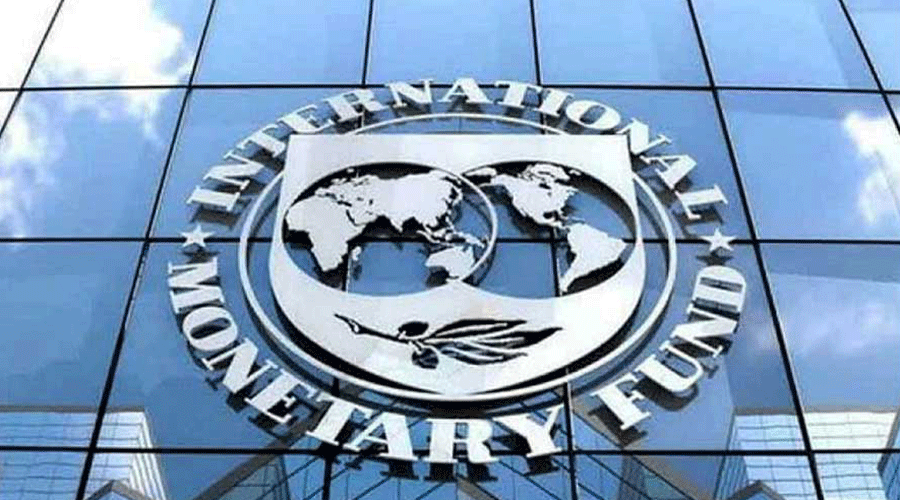The International Monetary Fund (IMF) on Tuesday cut its forecast for India’s economic growth to 6.8 per cent in 2022 — sharply down from its earlier projection of 7.4 per cent in July.
The IMF’s move is in line with other global agencies that have also trimmed their forecasts. India had grown at 8.7 per cent in fiscal 2021-22 (April-June.)
In its annual World Economic Outlook report released on Tuesday, the IMF said the downgrade in the forecast reflected a weaker-than-expected outturn in the second quarter and more subdued external demand.
India’s economy is doing fairly well, but additional monetary tightening is required, IMF’s chief economist Pierre-Olivier Gourinchas said.
“Inflation is still above the central bank target in India. We expect India’s inflation at 6.9 per cent in 2022-23, which is likely to come down to 5.1 per cent next year. So, the overall stance of the policy we think that fiscal and monetary policy should be probably on the tightening side,” Gourinchas said.
Global growth slows
The IMF also said that global growth is also set to slow to 3.2 per cent in 2022 and 2.7 per cent in 2023 – down from the 6 per cent growth in 2021.
The economic growth projections reflect significant slowdowns for the largest economies: a US GDP contraction in the first half of 2022, a Euro area contraction in the second half of 2022, and prolonged Covid-19 outbreaks and lockdowns in China with a growing property sector crisis, the IMF said.
“The global economy continues to face steep challenges, shaped by the lingering effects of three powerful forces: the Russian invasion of Ukraine, a cost-of-living crisis caused by persistent and broadening inflation pressures, and the slowdown in China,” said Gourinchas in his forward to the WEO released during the annual meeting of the IMF and the World Bank.
More than a third of the global economy will contract in 2023, while the three largest economies — the US, the EU, and China — will continue to stall. “In short, the worst is yet to come, and for many people 2023 will feel like a recession,” he wrote.
Growth rate projections for China is 3.2 per cent, down from 8.1 per cent growth rate in 2021. In China, the frequent lockdowns under its zero-COVID policy have taken a toll on the economy, especially in the second quarter of 2022. Furthermore, the property sector, representing about one-fifth of economic activity in China, is rapidly weakening.
In the United States, the tightening of monetary and financial conditions will slow growth to 1 per cent next year. In China, the IMF has lowered next year’s growth forecast to 4.4 per cent due to a weakening property sector and continued lockdowns, he wrote in a post.
Central banks should “stay the course” in their efforts to normalise monetary policy and combat inflation, Gourinchas said.
“What we are recommending is that central banks stay the course,” Gourinchas told a briefing at the annual meetings of the IMF and the World Bank. “That doesn’t mean that they should accelerate compared to what they’ve been doing ... but it also doesn’t mean that they should sort of pause on the path to monetary normalization.”
Tough times for banks
The IMF also warned that up to 29 per cent of the banks in emerging markets would breach capital adequacy requirements if the world tumbled into a recession in 2023.
In its Global Financial Stability Report which was also released on Tuesday, the IMF said these emerging market banks would require over $ 200 billion to rebuild their capital buffers and the capital shortfall, it added.
A Global Bank Stress Test revealed that most of the advanced economy banks would, however, remain resilient. Asset prices across the world would come under pressure and the challenging macroeconomic environment would pressure the global corporate sector.
Steep downgrade
■ Forecast is sharply down from IMF’s earlier projection of 7.4 per cent in July
■ Move is in line with other global agencies that have also trimmed their forecasts.
■ IMF said the downgrade reflected a weaker-than-expected outturn in the second quarter and more subdued external demand













